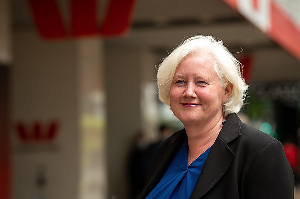
For example, AIA pointed us to their website which confirms it's equivalent benefit provides up to $500,000 a year cover per policy and it provided some general statistics on what it pays out on all the benefits it offers, but nothing specific to this particular one.
“Unfortunately AIA is unable to provide further information about this,” its response said.
nib wasn't much more forthcoming, saying that it “provides coverage for non-surgical hospital-related benefits” up to a maximum limit of $300,000 a year for its Ultimate Health Max product.
“This includes cover for services such as cardioversion, cancer treatment and IV injections,” nib said.
It provided no information on claims rates, average payouts or any other sort of data – the reason GoodReturns wanted to know about this was because Southern Cross had cited the low rate of use of its benefit as its reason for scrapping it.
However, Naomi Ballantyne at Partners Life was much more forthcoming, which is perhaps yet another indication of why she's been such a successful serial entrepreneur.
Ballantyne explained that her company doesn't offer cover for small everyday expenses, such as doctor's visits, but reserves its cover for the big life-changing or threatening events such as paying for expensive cancer drugs.
“The most important thing about us is that we guarantee that once the client has cover, we can never take anything away,” she says.
“We can add, and we have over the years, but we can never take anything away.”
The reason Southern Cross was able to withdraw its non-surgical hospitalisation benefit was because the wording of its policies allows it to do this, and other companies have similar wording in their policies.
“We don't believe you should do that to a customer,” Ballantyne says.
The Southern Cross move came to light after a customer who had used the benefit for past non-surgical hospitalisations but had suffered a change in circumstances that caused them to review their policy with the company and realised the benefit was no longer there.
Ballantyne says the largest single medical claim Partners Life paid last year was $280,000 for gastrointestinal cancer treatment.
Her company's three largest categories of claim against this benefit last year were cancer, costing $12.4 million in payouts, digestive tract conditions, costing $9.1 million, and investigations and tests, costing $8 million.
Southern Cross has said that its 2019 review found for the now withdrawn benefit it had paid an average of $414 per claim for 801 members and that most of the claims were for IV infusions or overnight accommodation associated with sleep studies.
Graeme Lindsay, who provides analysis to life and health insurance agents through his firm Strategy Financial Services, provided GoodReturns with a list of firms which continue to offer superior benefits to the one Southern Cross cancelled.
As well as the companies already mentioned, Accuro Smartcare/Smartcare+ offers cover up to $300,000 per person, per year, and Unimed Hospital Select Plus offers up to $65,000 per person, per year.



